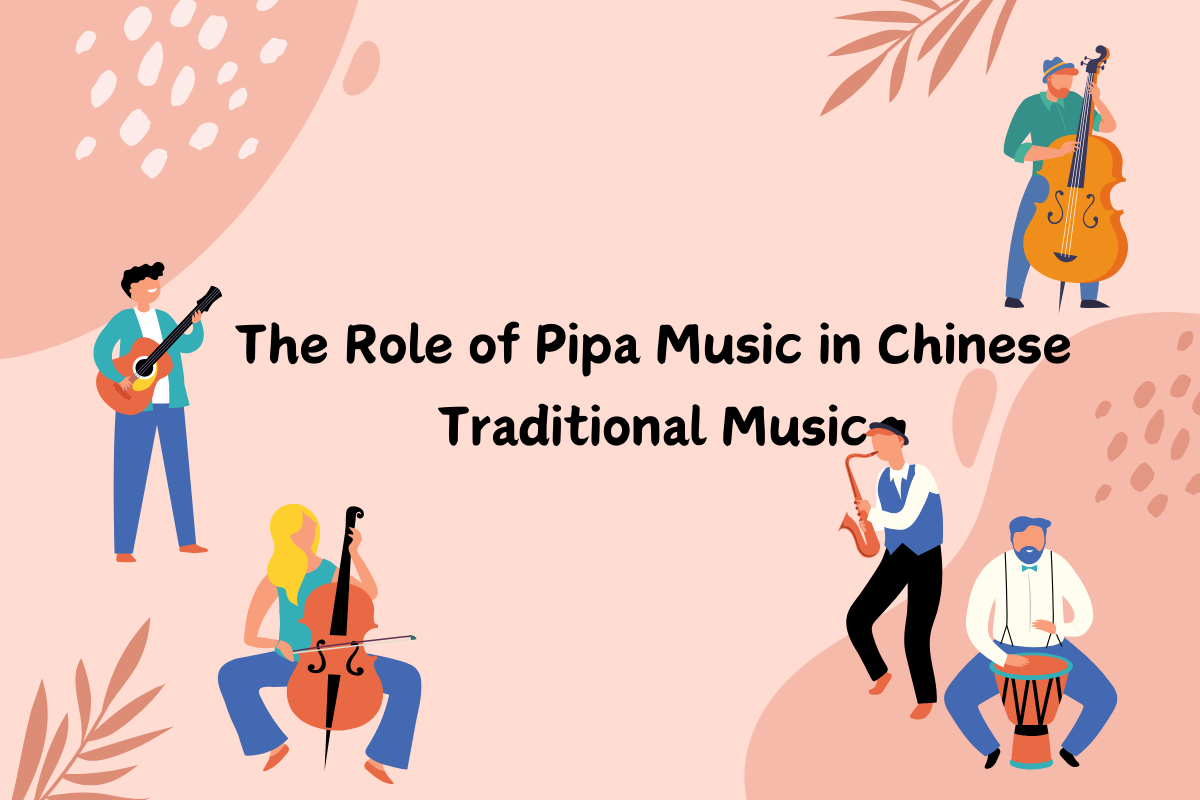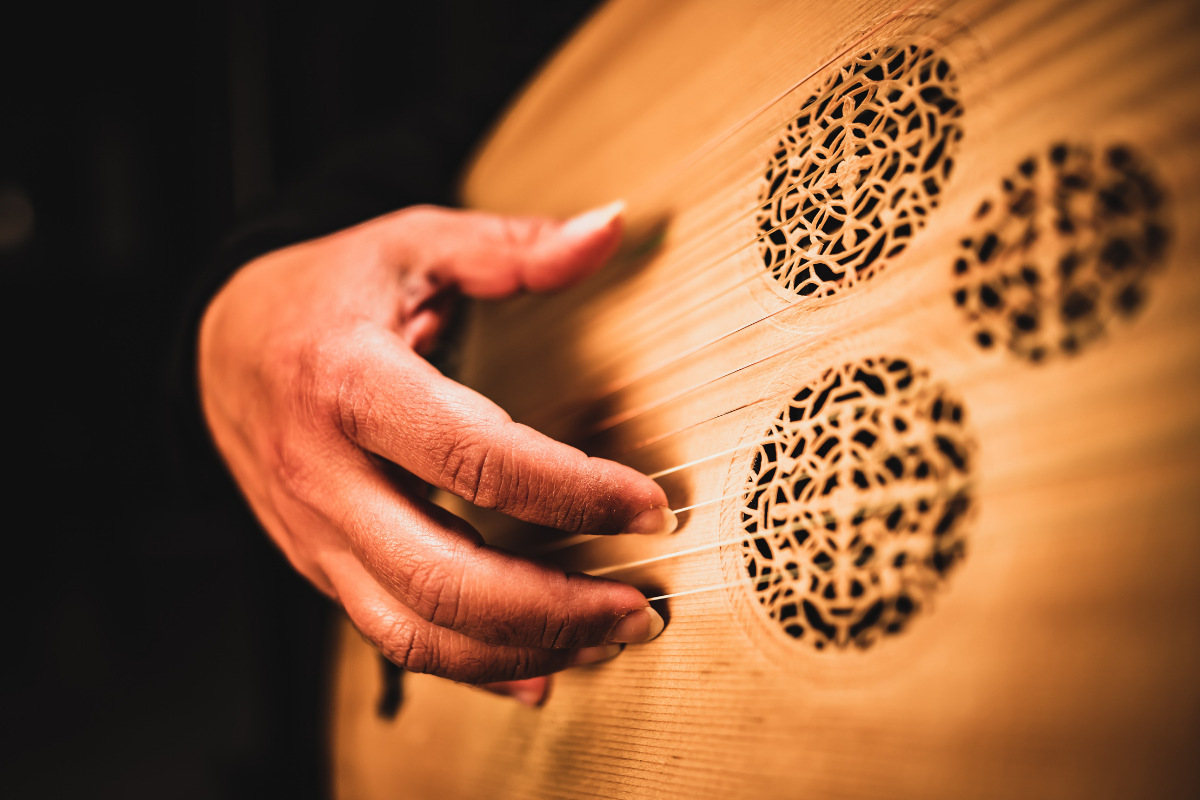The Role of Pipa Music in Chinese Traditional Music
The pipa, a traditional Chinese musical instrument with a history spanning over two thousand years, holds a revered position in Chinese traditional music. In this blog post, we explore the rich heritage and significance of pipa music in the context of Chinese traditional music, examining its role, evolution, and enduring appeal.

Historical Legacy:
The pipa, often referred to as the "king of Chinese instruments," has been an integral part of Chinese culture since ancient times. Its origins can be traced back to the Han dynasty (206 BCE – 220 CE), where it was introduced from Central Asia and gradually assimilated into Chinese musical 音乐的(yīnyuè de)tradition. Over the centuries, the pipa has evolved in both form and technique, adapting to changes in musical styles and tastes while retaining its distinctive character and sound.
音乐的(yīnyuè de),adj,musical
- She has a collection of musical instruments in her room.
她的房间里有一堆音乐的乐器。
Tā de fángjiān lǐ yǒu yī duī yīnyuè de yuèqì. - We watched a musical performance at the theater last night.
昨晚我们在剧院观看了一场音乐的表演。
Zuówǎn wǒmen zài jùyuàn guānkànle yī chǎng yīnyuè de biǎoyǎn.

Musical Characteristics:
The pipa is known for its versatility and expressive range, capable of producing a wide variety of tones and textures. Its unique design, featuring four strings and a pear-shaped body, allows for virtuosic 精湛的(jīngzhàn de)techniques such as plucking, strumming, and tremolo. From delicate melodies to thunderous crescendos, the pipa's dynamic capabilities make it a versatile and captivating instrument in the hands of a skilled performer.
精湛的(jīngzhàn de),adj,virtuosic
- Her piano performance is very virtuosic.
她的钢琴演奏非常精湛。
Tā de gāngqín yǎnzòu fēicháng jīngzhàn. - The performance of this violinist showcases virtuosic skills.
这位小提琴家的表演展现了精湛的技艺。
Zhè wèi xiǎotíqín jiā de biǎoyǎn zhǎnxiànle jīngzhàn de jìyì.
Cultural Significance:
Pipa music plays a significant role in Chinese traditional music, serving as both a solo instrument and an accompaniment to other musical ensembles. It is often featured in classical Chinese opera, folk music, and instrumental ensembles, adding depth and emotion to musical compositions. Beyond its musical prowess, the pipa is also celebrated for its cultural symbolism, representing grace, elegance, and refinement in Chinese artistic tradition.
- She learns to play the pipa at music school.
她在音乐学校学习弹琵琶。
Tā zài yīnyuè xuéxiào xuéxí tán pípá. - Grandpa can play beautiful pipa tunes.
爷爷会弹奏美妙的琵琶曲。
Yéye huì dànzhòu měimiào de pípá qǔ. - This song includes a solo pipa section.
这首歌中有琵琶的独奏部分。
Zhè shǒu gē zhōng yǒu pípá de dúzòu bùfen.